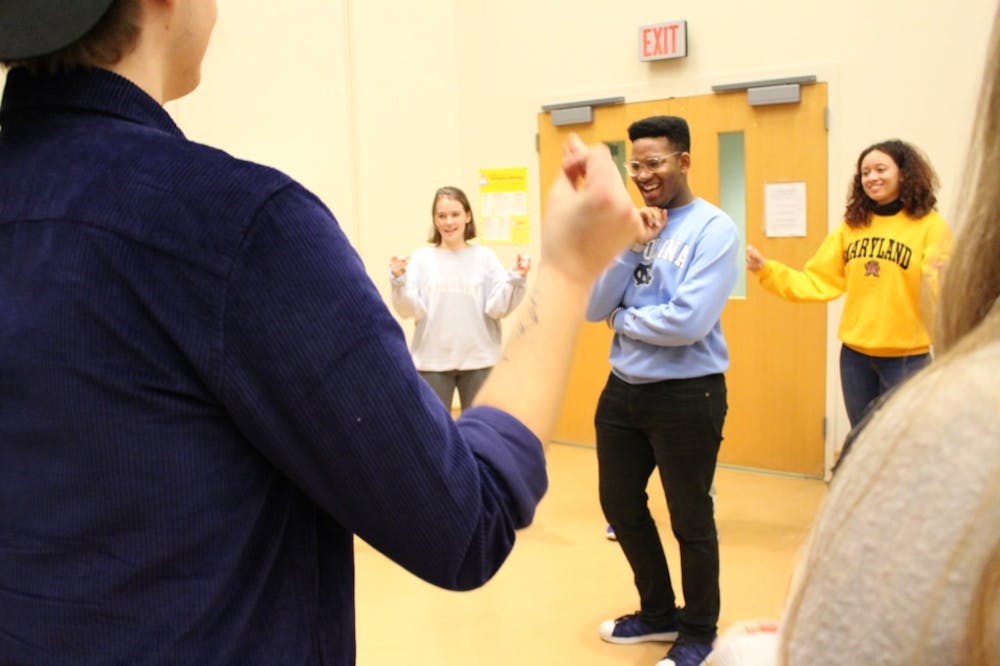UNC student-written and performed stories will highlight identity and growth this weekend during the Me Too Monologues at Joan H. Gillings Center for Dramatic Art.
“It's the life of a student, it's identity, it's everything,” said David Navalinsky, UNC director of undergraduate production.
Me Too Monologues will be performed at 7 p.m. on Jan. 23, 24 and 25. Admission is free for everyone.
The upcoming show will consist of several monologues, such as “A Letter to a Past Something,” “Privileged” and “He Said He Loved Me.”
“One defining feature is that all of the pieces are written by students,” co-director Parker Jenkins said. “Even though they are all written about different things, they are all close to home because they are all from UNC students.”
The topics range from mental health issues to sexual violence, gender identity, friendships, relationships and various forms of oppression.
“The beauty of (Me Too Monologues) is that these aren't fiction,” Jenkins said. “All of our stories are very real and true and present.”
Me Too Monologues started at Duke University in 2009. The show eventually spread to UNC in 2015 after a group of Duke students reached out. Now in its sixth year at UNC, Me Too Monologues allows students to submit a story focusing on the theme of identity in the fall semester.
Me Too Monologues also holds auditions for actors during the fall semester. A team of directors sits down to cast a team of student actors that will read the monologues of other students at the spring performance.



